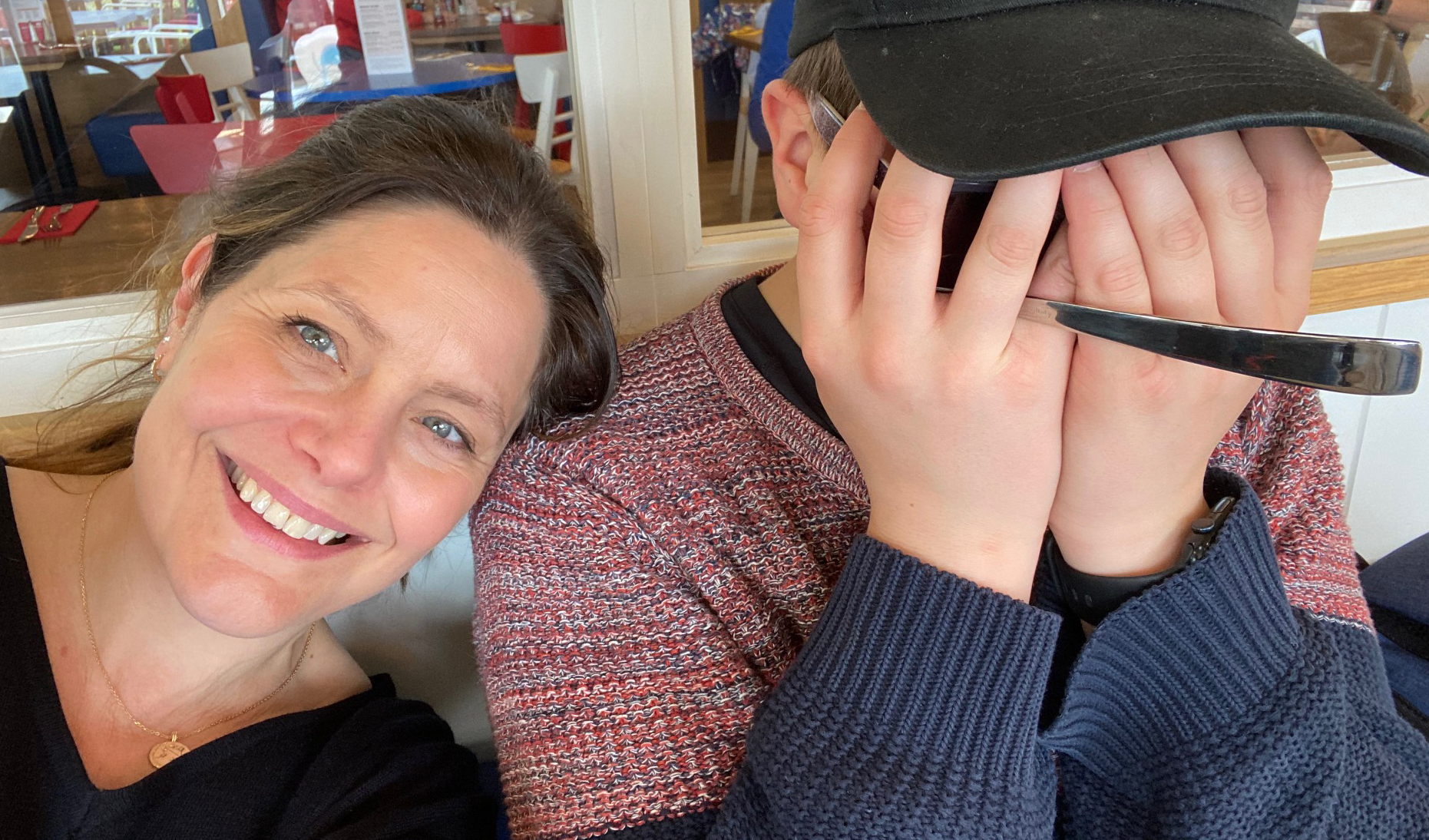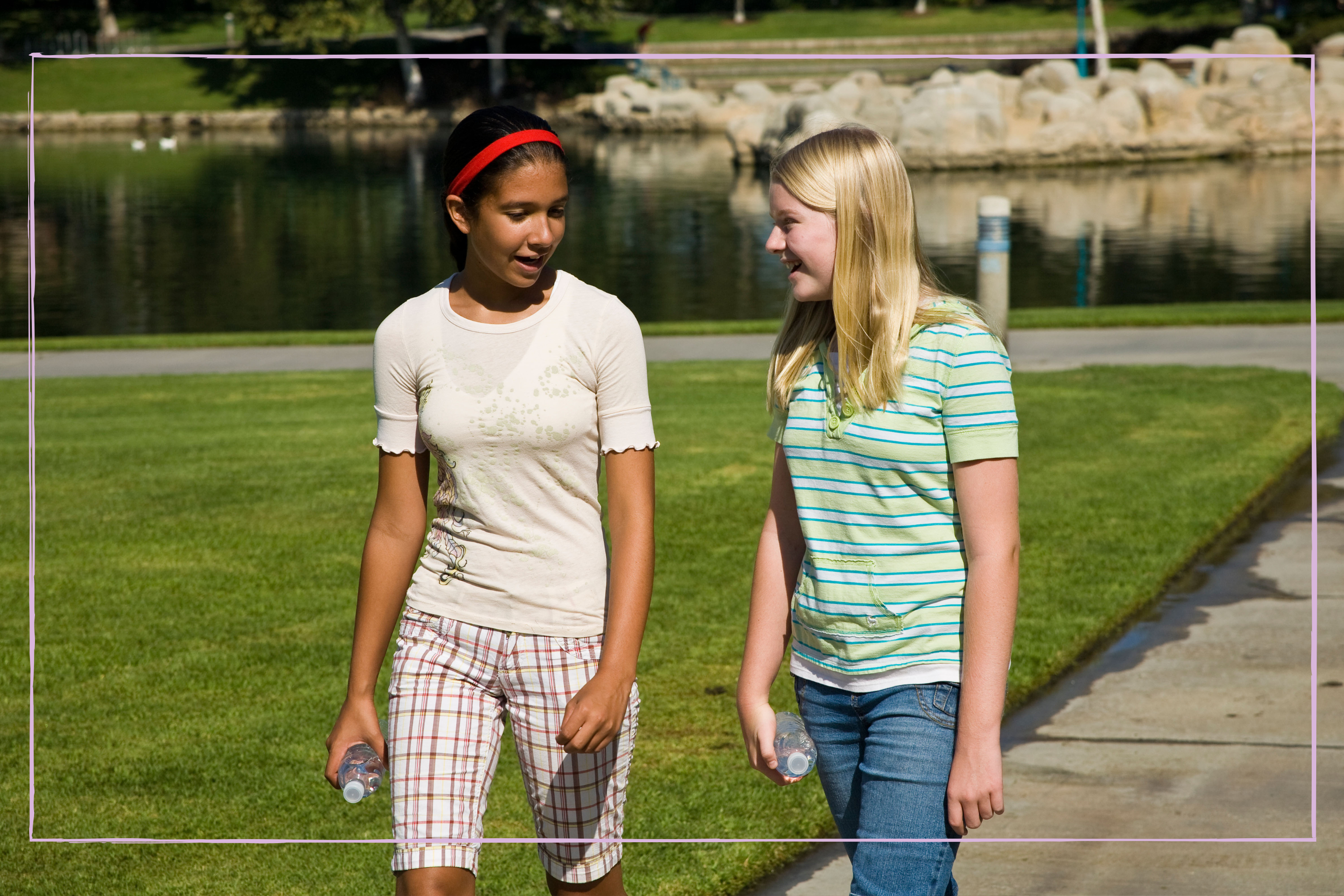What are 'Mickey Mouse' degrees? Expert reveals why this term is unhelpful for teens making higher education choices
It's an off-putting term teens don't need to hear


What are 'Mickey Mouse' degrees? It's a good question - for teens embarking on those all-important higher education choices, a child development expert reveals why it's an unhelpful term.
Seeing your teen through exam stress can be a difficult time for parents. Whether you're seeing them through GCSE or A Level exams, some teens have a particular goal in mind - to get to university.
It's therefore a worry, that certain courses have been branded 'Mickey Mouse' degrees, and our GoodtoKnow resident expert, child development expert, Dr Amanda Gummer, believes the term shouldn't be used. She tells us "Using the term ‘Mickey Mouse degrees’ to describe certain university courses isn’t particularly helpful as teenagers start navigate their educational and career choices and explore topics that inspire them.
"The term ‘Mickey Mouse’ can undermine the value of different topics of study and even potentially fosters a culture of mockery that isn’t OK. Labelling anything that promotes study, learning and commitment as a joke can have negative connotations and could well put off students from pursuing their genuine interests."
The term was coined by the Minister of State for Universities, Margaret Hodge, at the time Labour looked to increase the number of students attending university in the 90s. Tabloid newspapers latched on to the phrase, and it became a term synonymous with university degrees or courses deemed worthless or irrelevant.
The phrase has once again made the headlines, having been used by Prime Minister, Rishi Sunak in the run up to the general election. The current PM suggests that if re-elected, he will shut down 'Mickey Mouse' degrees at UK universities, using money saved to create 100,000 apprenticeships a year by 2029/30. On unveiling this plan, Sunak said "Improving education is the closest thing we have to a silver bullet for boosting life chances. So, it’s not fair that some university courses are ripping young people off."
"Improving education is the closest thing we have to a silver bullet for boosting life chances. So, it’s not fair that some university courses are ripping young people off."
Prime Minister, Rishi Sunak
However, it appears the government are unwilling to commit to what actually constitutes a 'Mickey Mouse' degree. During a recent Radio 4 interview with Emma Barnett, minister of state for schools, Damian Hinds, was unable to give specific examples of such courses - even after being asked three times to name one.
GoodtoKnow Newsletter
Parenting advice, hot topics, best buys and family finance tips delivered straight to your inbox.
In 2023, The Telegraph published a list of what it deemed 'Mickey Mouse' degrees, based on the career pathways graduates of different subjects commonly take after leaving university, and their earning potential five years into their careers. Their analysis found 10 degrees offering the worst value for money, with those branded 'Mickey Mouse' by the media. These include:
- Photography
- Translation
- Criminology
- Fine Art
- Public Administration
- Music
- Film
- English Literature
- Fashion
- Tourism Management
Why the term 'Mickey Mouse' is unhelpful for teens
Dr Gummer tells us there are things parents need to bare in mind if their teen is concerned about hearing the term 'Mickey Mouse' in relation to a course they want to take. She says "We haven’t all ended up in a straight-line career path so it’s important that we don’t overlook the significant life skills that can be gained through the experience of heading to university.
Things like character building, camaraderie and resilience are all valuable skills essential for personal and professional development and often acquired through the experience that university life offers. By invalidating or making a mockery of certain courses or study areas we risk stifling the creativity of our young people which is much needed for a diverse future workforce."
The expert concludes, helpfully, "Universities have a duty to ensure that courses on offer provide real tangible and transferable value to students and the specific course content and the degree to which students are exposed directly to their lecturers and tutors is really important. As parents I believe we should encourage our children to explore a variety of disciplines and support their aspirations, as this will not only lead to academic success, but also help develop well-rounded individuals ready to contribute meaningfully to society."
For more on helping teens, if you have one who won't revise, our expert has top tips to turn things around. Would you pay your kid for their GCSE grades? One mum shares how this strategy has motivated her teen. If your young person searches for leaked exam papers online, they need to be warned of the consequences.
Dr Amanda Gummer has a PhD in Neuropsychology, the Postgraduate Certificate in Higher Education and more than 20 years’ experience working with children and families. As such, she is renowned as an expert on all aspects of child development, including toys and play. In 2012, she founded The Good Play Guide, an independent, expert accreditation service for children’s products, including toys, apps and more. She is also an expert panellist for GoodtoKnow.

Lucy is a mum-of-two, multi-award nominated writer and blogger with six years’ of experience writing about parenting, family life, and TV. Lucy has contributed content to PopSugar and moms.com. In the last three years, she has transformed her passion for streaming countless hours of television into specialising in entertainment writing. There is now nothing she loves more than watching the best shows on television and sharing why you - and your kids - should watch them.
-
 Strong willed teens don’t need to be ‘tamed,’ they need to be nurtured - expert shares how
Strong willed teens don’t need to be ‘tamed,’ they need to be nurtured - expert shares howIt might surprise parents when their strong willed child remains that way into the teenage years - instead of crushing this part of their temperament, an expert shares how to nurture it.
By Lucy Wigley Published
-
 We ask teenagers what they wish their parents had done differently, and their answers are surprisingly candid
We ask teenagers what they wish their parents had done differently, and their answers are surprisingly candidA lot of parents will wonder if their kids wish they'd done some differently, but never get to find out. We got to ask some teens this question, and here's their candid answers.
By Lucy Wigley Last updated
-
 9 things I'm doing to teach my teenage son about 'toxic masculinity'
9 things I'm doing to teach my teenage son about 'toxic masculinity'Influencers are having a worrying impact on young boys' behaviour and attitudes
By Debra Waters Published
-
 I have a 13-year-old son - here’s what I’ve found most difficult about parenting a teenager, and you might be able to relate
I have a 13-year-old son - here’s what I’ve found most difficult about parenting a teenager, and you might be able to relateMonosyllabic responses from our teenagers may sting, but it's normal
By Debra Waters Published
-
 What is sadfishing? How to talk to your teen about this online trend, and the impact on mental health
What is sadfishing? How to talk to your teen about this online trend, and the impact on mental healthHave you been wondering what is sadfishing? An expert shares why parents should have a conversation with their teens about this potentially dangerous practice.
By Lucy Wigley Published
-
 9 ways to let teenagers take positive risks this summer, according to an expert
9 ways to let teenagers take positive risks this summer, according to an expertHelp boost your teen's independence and confidence this summer with these small, manageable risks.
By Adam England Published
-
 Teens who display this one important quality during adolescent friendships, go on to be great parents according to research
Teens who display this one important quality during adolescent friendships, go on to be great parents according to researchA study has shown teens who display this one important quality during adolescent friendships, go on to be great parents - and it's fascinating.
By Lucy Wigley Published
-
 4 tips to help teens cope with exam results disappointment, from a psychologist
4 tips to help teens cope with exam results disappointment, from a psychologistExam conditions returning to pre-pandemic levels this year could see a downturn in results. A psychologist shares 4 tips to help teens deal with disappointment.
By Lucy Wigley Last updated